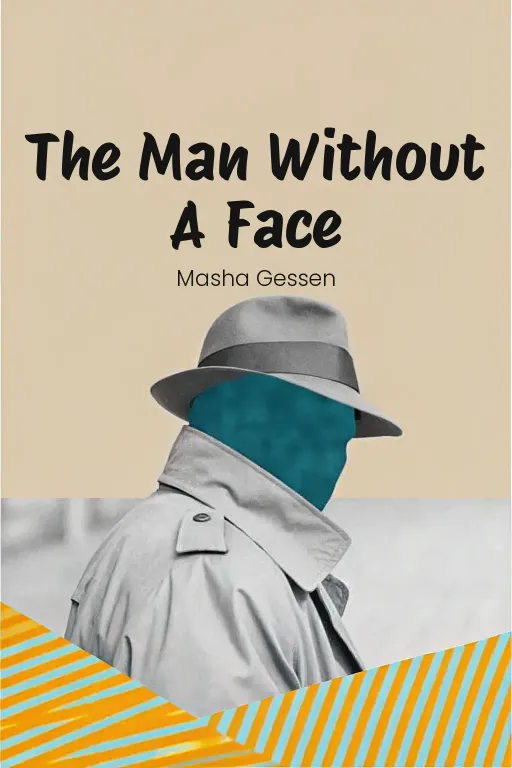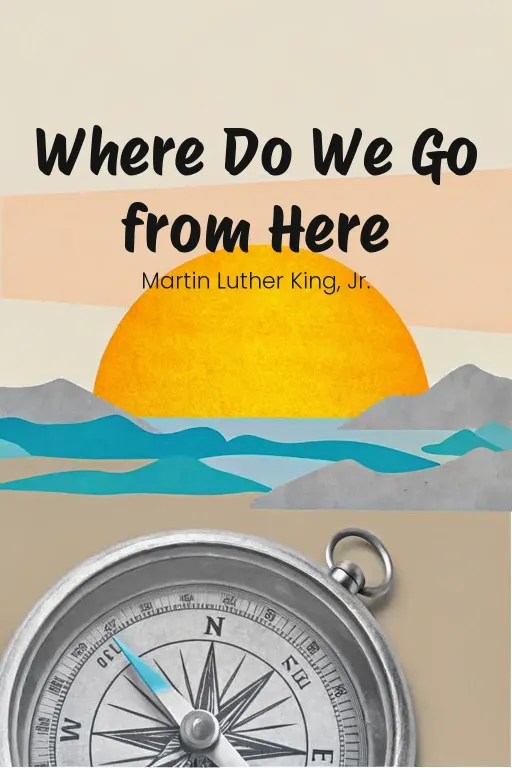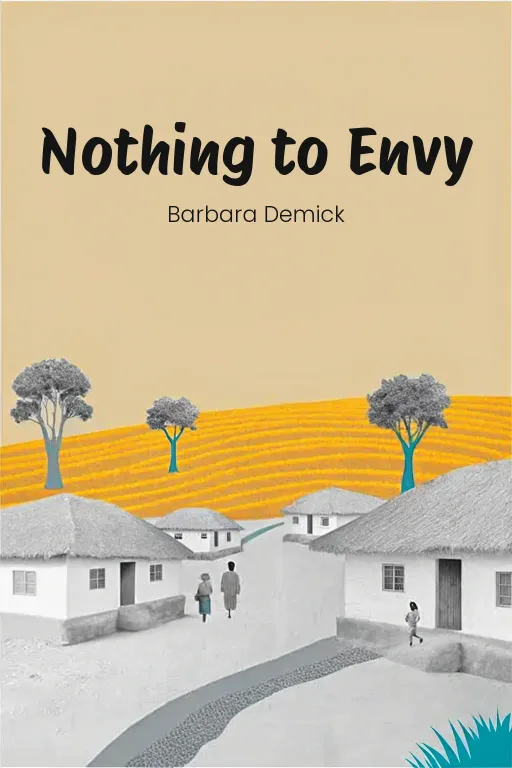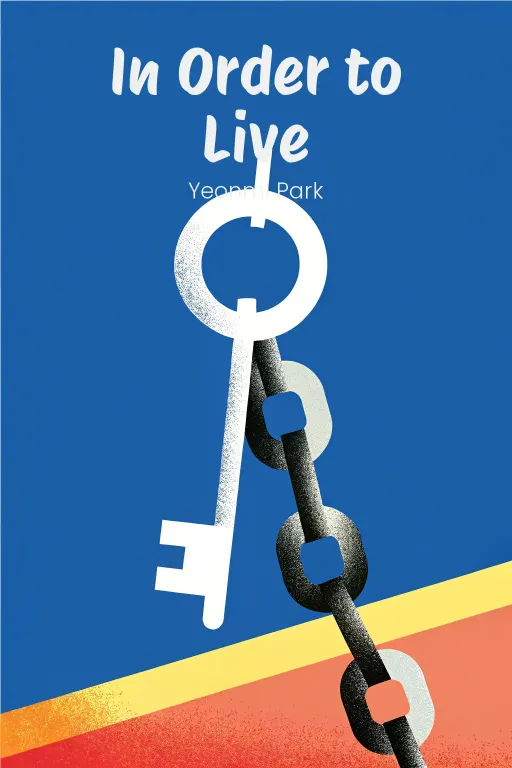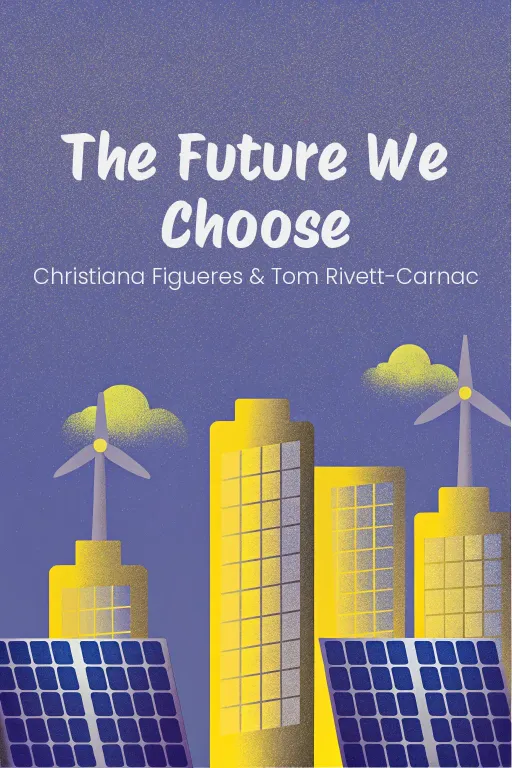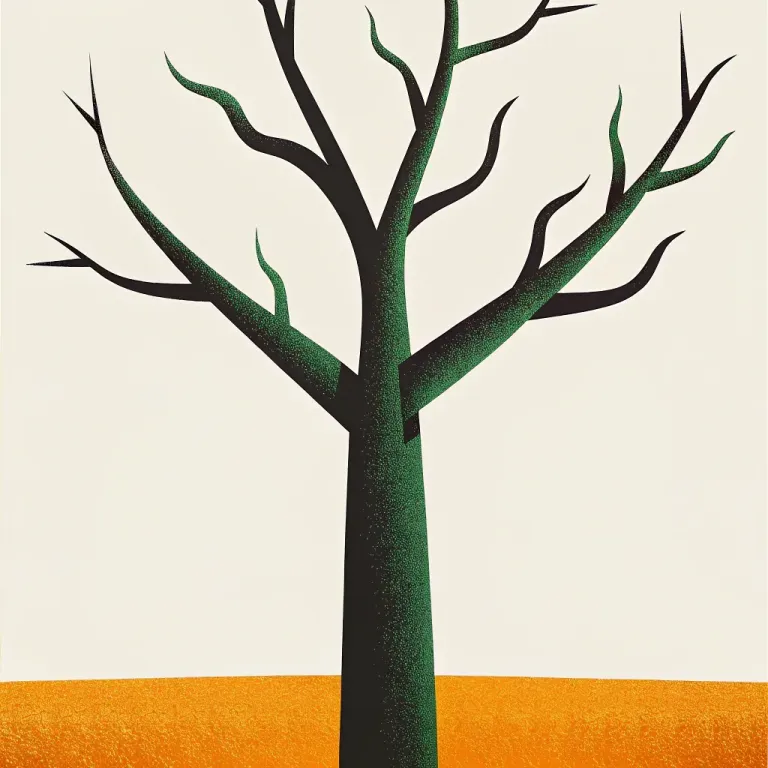
Escape From North Korea: Human Stories
Podcast by Civics Decoded with Thomas and Grace
Real Lives in North Korea
Introduction
Part 1
Thomas: Hey everyone, welcome to today’s episode! We're diving into North Korea, a country that's shrouded in secrecy and known for its extreme control. It's a place where loyalty is demanded, freedom is almost nonexistent, and just surviving can be a daily challenge. Grace: North Korea, yeah. I mean, it's practically the last of its kind when it comes to Stalinist regimes. Imagine a place where finding food is a constant struggle, and your radio is permanently tuned to the state propaganda channel. It’s not just oppressive; it's like a real-life dystopia. Thomas: Right, and it's within this “really” intense environment that you have ordinary people just trying to get by, to survive, and even dream. That's what Barbara Demick captures so well in her book, Nothing to Envy: Ordinary Lives in North Korea. She tells the stories of six people who defected from Chongjin, a city near the border, and how their lives all connect amidst famine, constant propaganda, and, you know, an almost unbelievable level of government control. Grace: It's a world where your family background—your songbun, as they call it—can determine your entire life. Even something like finding love becomes an act of rebellion. Demick “really” emphasizes their courage, their resourcefulness, and how far they're willing to go to find some kind of freedom. Thomas: Exactly, which brings us to what we're “really” focusing on today. We're going to unpack North Korea through three main themes. First, we'll look at the everyday struggle of living under this dictatorship, where the government’s watching everything, even your thoughts. Grace: Then, we'll get into the small but powerful acts of defiance and love. Because, believe it or not, even with famine and fear all around, people still fall in love. I mean, can you imagine having to wait six years just to steal a kiss? Thomas: And finally, we’re going to talk about their incredibly risky escapes. These stories are full of risk, loss, and they force us to ask, what does freedom actually mean after you've lived your whole life in chains? Grace: It sounds intense, and it is, but it's also incredibly compelling. It’s like turning on a light in a completely dark room. You might not like everything you see, but you just can't look away. Thomas: Exactly! And through these personal stories, we’re going to explore both the vast, controlling system of the regime and these “really” intimate glimpses of people fighting to hold on to their humanity. So, let's dive in!
Life Under Oppression
Part 2
Thomas: Before we really get into the devastating story of starvation and survival, we need to understand the backdrop – that incredibly oppressive atmosphere that defines absolutely everything in North Korea. You just can't talk about any of this without first grasping the totalitarian control the Kim regime has. Grace: Exactly! North Korea's leadership doesn't just want loyalty; they rewrite reality. The Kims are basically treated like gods – portraits in every home, songs praising them in schools, and history totally twisted into propaganda. I mean, Thomas, can you imagine having to bow to a painting every morning before breakfast? Thomas: It's like a super extreme version of manufactured reverence, and it works because it's constantly reinforced. Those portraits aren't just decorations, you know; if you don't take good enough care of them, you could get into serious trouble. Families are always anxious, not just about what they do, but how their actions might be interpreted. Grace: Right, and this constant show of devotion ... It's not just about keeping up appearances for the state; it destroys basic trust between people. Friends, neighbors, even family members are afraid. Anyone could be watching, ready to report you. Thomas: That fear is built into the system with things like the inminban – it’s like a neighborhood watch ... on steroids. It's this whole network of surveillance where heads of small groups of households monitor and report on any slip-ups, from being suspiciously absent from a public event to questioning something the state says. Over time, this creates a society held together by paranoia and obedience, not by any sense of community or solidarity. Grace: And then you have the songbun caste system. It’s like you’re born with a barcode on your back! Your family's past loyalty determines your rank – loyal, wavering, or hostile – and that decides everything: how much food you get, where you can live, whether your kids can dream of anything beyond manual labor. Thomas: Exactly. The songbun system operates like an invisible prison. Let’s take Mi-ran’s story, for example. She was smart and ambitious, but because of something her father did during the Korean War, her family was labeled "hostile," which basically blocked her from any opportunities. She couldn't become a teacher, which was her dream, while her boyfriend, Jun-sang, got all sorts of privileges because his family had a good songbun. Grace: And that divide highlights the absurdity of the social order. Jun-sang worships the regime because he benefits from being close to it. But Mi-ran, because of a decision her father made decades ago, lives a much harder life. No wonder people saw love across class lines as risky. Thomas: And isn't that the point? Even personal relationships, something as intimate as love, are shaped and restricted by the regime. But there's a bigger picture: when power is everywhere, it's not just about control, it’s about preventing any possibility of dissent before it even starts. Grace: But, surprisingly, even with all this control, cracks started appearing during the economic collapse of the '90s. Remember when the Soviet Union lifeline was cut off? North Korea’s already shaky economy went into freefall, and even the all-powerful state couldn’t keep its promises. Thomas: The fall of the Soviet Union was a huge turning point. For decades, North Korea's economy relied on subsidized resources from Moscow. Once those stopped, industries collapsed, and the nation’s infrastructure fell apart. You can see it in satellite images of the Korean Peninsula – South Korea lit up with electricity, while North Korea is almost completely dark. Grace: Dark literally and figuratively. Power outages weren’t just inconvenient; they were life-threatening. Factories shut down, schools couldn’t operate, and homes were left freezing in the harsh winters. And this wasn't just a temporary problem. It was the start of one of the worst tragedies in North Korean history: a famine. Thomas: And that famine of the 1990s is one of the darkest chapters of this story. The public distribution system collapsed, and the regime basically abandoned its people and started shifting the blame. State propaganda pointed fingers at external enemies, while families like Mrs. Song’s were selling everything they owned just to buy basic food. Grace: Mrs. Song ... a tragic but important example. She starts selling homemade tofu to get by, but then she can’t even find soybeans. So, bit by bit, she sells off everything her family owns – her TV, paintings – until there's nothing left but survival. Thomas: Or think about Mi-ran’s memory of her kindergarten students, right? Children like her favorite pupil, Hye-ryung, just disappearing from school because their families couldn't feed them. The number of students dropped from fifty to fifteen in just a few months. It really shows how starvation hits the young and vulnerable first. Grace: And then there were the kochebi – the “wandering swallows.” Homeless children scavenging the streets for scraps. This was the human face of the famine – a generation of kids reduced to skeletal figures with hollow eyes. This is the kind of desperation you'd expect in some dystopian novel, but it was real! Thomas: But even within this bleakness, there's a strange paradox, isn’t there? Amid starvation and oppression, people started finding ways to survive by creating informal markets and trading goods. These markets, though initially tolerated quietly, eventually challenged the state’s control of the economy. Grace: But those markets weren’t exactly a sign of hope, either. Sure, they show resilience, but needing this entire underground economy to survive just shows how badly the system had failed. Think about the pear story – finding a rotten pear in a field becomes the most powerful memory of survival because that’s all you could cling to. Thomas: It is a testament to human tenacity, though, isn’t it? People didn't give up. They endured, adapted, and found ways to survive not just starvation but also fear, indoctrination, and betrayal. Those informal markets were lifelines, places where suffering and innovation met. Grace: The regime’s control may have been suffocating, but as we'll see, those cracks – first economic, then ideological – just kept getting wider. And people like Demick’s defectors? They faced that oppression head-on, found those cracks, and clawed their way toward freedom.
Love and Defiance in Adversity
Part 3
Thomas: So, that really sets the stage for understanding the personal and societal challenges people face. And I think one of the most powerful ways we see these challenges play out is through love and defiance in “really” difficult situations. Even in these “really” restrictive environments, people still found ways to connect, you know? It just shows how resilient we are. Grace: It’s fascinating, isn’t it? I mean, you'd think in a place where you're constantly being watched, and trust is so rare, that love would be the first thing to disappear. But instead, it becomes almost a quiet act of rebellion, giving people a little bit of control in their lives. Thomas: Exactly! And Mi-ran and Jun-sang are a perfect example. Their secret romance wasn't just a love story; it was a way of pushing back against the regime's control over their personal lives. First, let's look at their songbun backgrounds, which is like their social class. Mi-ran came from a "hostile" family; her father was labeled a traitor because of his ties to the South during the Korean War. And that label affected everything for her—her education, her job, even her relationships. Grace: Right, and Jun-sang was a little better off, relatively privileged in that system. So, you've got not just societal tension, but emotional tension too. They're living different versions of the same reality, basically. Thomas: Exactly. Mi-ran was always dealing with her family's stigma, while Jun-sang had to maintain this image of being a model citizen. For six years, they managed to keep their relationship going, meeting secretly for walks or quick conversations. The effort alone it took to be together says so much about the environment they were in. Grace: And let's be real, those walks weren't just romantic. They were about survival. The darkness wasn't just romantic candlelight; it was North Korean darkness, where even the moon probably felt like surveillance. Thomas: And those ginkgo trees where they walked—that's where their love grew. That abandoned hot spring resort became their safe space, you know? A small, fragile place where they could connect without being watched. Grace: It’s so bittersweet, though, because their relationship was both an act of defiance and a result of the situation. They created these moments because they had to; the system forced them into secrecy. Holding hands wasn’t just love; it was rebellion. Thomas: Rebellion, but also resilience, I think. Even in secret, their relationship took root. Mi-ran often thought about how slow things were—three years to hold hands, six years to kiss. It “really” shows how deeply fear can affect intimacy. You're always second-guessing every touch, every word. Grace: And even Jun-sang, who was in a better position, wasn't immune to the psychological effects. Imagine knowing that every smile, every glance, could be seen the wrong way—not just by strangers, but by the person you love. Thomas: Right, and despite all that, their love lasted. But it came at a cost. Mi-ran couldn't even tell Jun-sang how she “really” felt about the regime. She knew that one wrong word, even in private, could ruin everything. Grace: Which makes her decision to leave even more difficult. She didn't just leave the regime; she left him, without explaining why, because telling him could have put them both in danger. That silence wasn't cowardice; it was a survival strategy. Thomas: It’s “really” heartbreaking. When they met again years later in South Korea, the weight of that silence came crashing down. Jun-sang asked her why she didn't say goodbye. And she said, "There was no way to explain." That “really” shows how North Korea controls not just actions, but the possibility of closure. Grace: And we don't talk enough about the emotional impact of defection. Mi-ran might have been physically free, but emotionally, she was carrying the guilt of leaving Jun-sang and the worry about how her actions might have affected him and her family. Thomas: Exactly. The regime doesn’t just chain people's bodies; it chains their emotions, their relationships, even their memories. And for Mi-ran and Jun-sang, what started as a bond of defiance became a wound that neither could fully heal. Grace: But what’s amazing is that their story isn’t unique. It reflects the struggle of North Koreans trying to stay human in a system that tries to dehumanize them. Every whispered conversation, every stolen glance, was a reminder that even in the darkest places, people can—and do—find ways to resist. Thomas: And that resistance, whether through love or rebellion, shows the power of hope. Mi-ran and Jun-sang’s story is very personal, but it also shows us how even small acts of defiance can have a huge impact. Grace: Yeah, it’s love as survival, survival as defiance. In a regime that's perfected the art of erasing identity and autonomy, just holding on to those things feels monumental.
Defection and the Quest for Freedom
Part 4
Thomas: So, we've talked about systemic oppression. Now, let's dive into how people personally and emotionally respond to it. Today, we're really focusing on "Defection and the Quest for Freedom," which is about the incredibly transformative, and often really painful, process of escaping North Korea. At its heart, it's a story of resilience and hope. It's about facing huge risks and the emotional cost of leaving everything behind. Grace: Right, and let’s be clear, defecting isn’t just hopping across a border. It's a serious trial that takes unbelievable courage, some serious planning, and honestly, a willingness to bet it all. Think about it: navigating freezing rivers, dodging border guards who are ready to shoot, all while carrying the weight of leaving loved ones possibly in danger. Thomas, why don’t you start us off with one of Demick’s most vivid stories: Dr. Kim and her icy rendezvous with the Tumen River? Thomas: Absolutely, Dr. Kim's escape in 1999 really captures the harrowing and emblematic nature of defection. She reached the Tumen River during early spring, when the water was only partially frozen. Like many defectors, desperation pushed her to take the risk. Crossing that river was her only shot at survival. Just imagine those conditions – testing the ice by throwing stones, sinking waist-deep into freezing water. It's just brutal. Grace: Chilling, indeed, pun intended! That river's not just a geographical barrier; it’s a mental one too. Each step is a gamble between freedom and, well, death. Her method—throwing stones to see if the ice would hold—it’s so simple, so primal, yet so urgent. You're not just crossing water; you're crossing a divide between despair and possibly a better life. Thomas: Exactly, and she pushed forward even when the ice broke halfway across. Can you imagine sinking waist-deep into that frigid water, your body freezing, and your instincts telling you to turn back! But for Dr. Kim, turning back just wasn't an option. She literally clawed her way to the Chinese side, drenched and trembling. That's the kind of determination defection demands. Grace: And if that wasn’t enough, what’s waiting for her on the other side? A harsh dose of reality. She finds a bowl of rice – leftovers meant for farm animals – and it hits her hard: even animals eat better in China than professionals do in North Korea. That's when she first understands the scale of the lies she’s been fed her entire life. Thomas: That detail about the rice is so powerful. It really shows the bubble of propaganda that defectors like Dr. Kim grow up in. It’s not just physical deprivation they've endured but intellectual and emotional as well. Crossing the river wasn't just about escaping hunger, it's about breaking free from a lifetime of brainwashing. Grace: And if the Tumen River sounds like the ultimate test, it’s really just the beginning. Once you're in China, survival becomes a whole new kind of nightmare. You're stateless, you're hunted, and you're constantly terrified of being sent back. And let's not forget China's policy on defectors – they’re labeled economic migrants, not refugees and shipped back to North Korea if they’re caught. The punishments for that are severe, to say the least. Thomas: Right. Being caught and sent back isn't just a risk; it's often a death sentence or worse, a life in a labor camp. And many women, like Oak-hee, face even more exploitation once they're in China. They're often trafficked into forced marriages because of the gender imbalance in the rural areas there. Grace: Oak-hee’s story is such a tragic example of how even "freedom" can come with its own chains. She endures years of abuse in North Korea – her husband, Yong-su, was practically a tool of the state’s oppression – and then she escapes only to be sold as a bride in China. It’s compromises like these that show how limited the choices really are for defectors. Thomas: Her new husband, Minyuen, was at least kind – a stark contrast to Yong-su. But being purchased like that? It's another form of objectification, another reminder that she doesn't have control over her own life. Yet, Oak-hee adapts. She starts saving small amounts of money, quietly planning her next move. That really is resilience in the face of repeated exploitation. Grace: Exactly, and that’s the key. Defection doesn’t end when you cross a border. The mental burden that they carry is huge. These people are carrying the weight of guilt – leaving loved ones behind, knowing the regime might retaliate against them. For Oak-hee, that pain is doubled because her children are left behind, and might be seen as tainted now. Thomas: The regime's retaliatory tactics are not random, either. It's a deliberate strategy: collective punishment designed to break family bonds and discourage others from even trying to escape. Even as you flee, you know you're potentially causing harm to those you left behind. Grace: Then for the defectors who actually make it to South Korea through these underground networks, the struggle doesn’t just magically disappear. They may be safe from North Korean retaliation, sure, but true freedom comes with a really difficult psychological adjustment. Can you imagine stepping into a modern, capitalist society after living in total restriction? That's not just culture shock—it's a complete identity shock. Thomas: And there's also the stigma that defectors face in South Korea. A lot of them struggle to fit in, feeling out of place and overwhelmed by the pace and competitiveness of life there. And those experiences of trauma combined with this new environment—it just makes their sense of isolation even stronger. Grace: It’s like surviving one storm only to find yourself caught in another. This adjustment really highlights this tough reality: freedom alone doesn't solve everything. It’s complicated, it’s messy, but these defectors show incredible bravery time and time again just to rebuild their lives. Thomas: Absolutely. And that's the common thread tying these stories together—Dr. Kim, Oak-hee, and so many others. Freedom just isn't a destination. It's an ongoing process that defies both circumstances, and expectations. Their journeys really remind us that in the quest for liberation, hope and resilience aren't just tools, they're what make survival worthwhile.
Conclusion
Part 5
Thomas: You know, what “really” strikes me is the deep connection between survival, resilience, and hope in all these stories. From dealing with systemic oppression to those small acts of defiance, and then those incredibly difficult escapes, it's amazing to see how people managed to hold onto their humanity through such unimaginable hardship. Grace: Exactly. Whether it's forbidden love under the ever-present threat of songbun, or that defiant entrepreneurial spirit people showed during the famine. These stories aren't just about surviving under a totalitarian regime, they're about these little sparks of rebellion that slowly, but surely, chip away at the system itself. Thomas: Right, those stories remind us that even in places designed to crush the human spirit, these cracks can form, you know? Even in the darkest times. And those cracks become pathways to freedom, resilience, and creativity. Grace: But it's also a bit sobering, isn't it? Freedom isn't a straight line. Crossing that border or breaking the rules, that doesn't mean the struggle is over, it just changes. It's like moving from surviving one type of suffocation to navigating a whole new set of storms in a completely unfamiliar place. Thomas: It “really” makes you think about what freedom actually means. Is it just the absence of oppression? Is it the ability to love, to dream, to hope without being afraid? Or is it that constant battle to reclaim those things, despite everything? Grace: Yeah, and maybe that's the key takeaway here. Stories like these force us to “really” think about freedom in a bigger way – both the sacrifices it demands and, perhaps even more importantly, the responsibilities that come with it. Thomas: So, let’s think about this: What can these acts of survival, defiance, and hope teach us about resilience? And beyond that, what can we do to support those who are still fighting for their own freedom? Grace: Heavy questions, for sure, but necessary, right? The North Korean regime “really” thrives on silence, and that includes our silence. If these stories are asking one thing of us, it's this: pay attention, speak up, and don't let those cracks in the wall close up again. Thomas: Absolutely. Thanks for joining us as we've explored these “really” powerful stories. Until next time, let’s keep those lessons of resilience and the courage to act close to us, even when things seem impossible.
